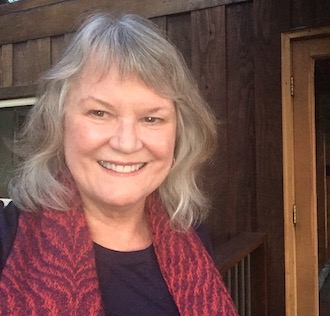My parents came to the US as refugees after World War II and raised me in Seattle on Capitol Hill. Nature was more frightening than nurturing to them. The closest we ever got to wilderness growing up was summers spent at Soap Lake, where my parents and their friends soothed their aches with therapeutic mud baths.
 That changed for me when, at age 11, I watched a docudrama on PBS that explored a future world suffering from overpopulation. The ending permanently embedded itself in my psyche. It showed a woman who owned the last five acres of undeveloped land on earth. She lived among trees and flowers and seeming peace, but as the camera zoomed out, I saw hordes of humans surrounding her land trying to get past her tall security fence to the last serene bit of nature that lay beyond.
That changed for me when, at age 11, I watched a docudrama on PBS that explored a future world suffering from overpopulation. The ending permanently embedded itself in my psyche. It showed a woman who owned the last five acres of undeveloped land on earth. She lived among trees and flowers and seeming peace, but as the camera zoomed out, I saw hordes of humans surrounding her land trying to get past her tall security fence to the last serene bit of nature that lay beyond.
I vowed then that, should that ever happen, I would be the woman with the last five acres.
Fast-forward to 1987, when my family was able to afford some land and a house on Orcas. During closing I learned about the Land Bank tax, wondered at such foresight, and marveled at what a fair tax it was. A new property owner paid into a fund that protected the very values most people moved to the San Juans for!
Soon I learned about the San Juan Preservation Trust and the significant role it played in local land conservation, as well. When the Hogback on Orcas went on the market, I turned to the Preservation Trust and the Land Bank for help to protect its views and wildflower meadows. Through their partnership, and the commitment of many neighbors and friends, the Hogback Preserve was born. I experienced first-hand the power of a dedicated community.
I care about SJPT’s work because land conservation has been my passion since that 11-year-old girl realized earth’s resources are finite and need protecting for the benefit of future generations. I am grateful to live in a place so committed to land conservation and I am proud to be a long-time member of the trust. Being part of the trust’s Gann Society is my way of ensuring that my passion lives on long past my time on this earth and that dystopic future of owning the last five acres never happens.
